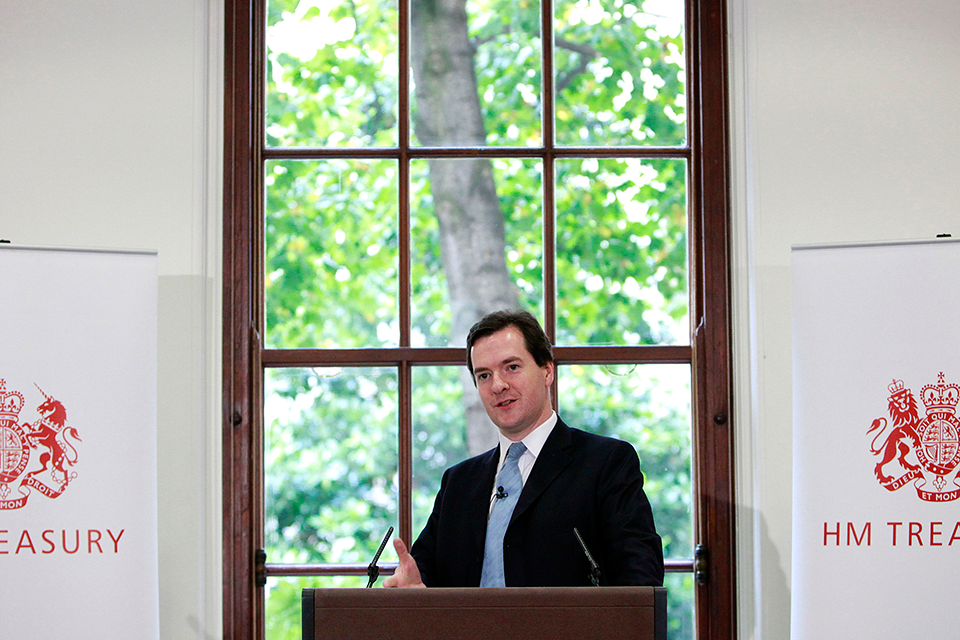IMF Article IV opening remarks by the Chancellor of the Exchequer, Rt Hon George Osborne MP
Speech by the Chancellor of the Exchequer.

I want to welcome you all to the Treasury and in particular welcome David Lipton, the First Deputy Managing Director of the IMF and his team here to conduct the annual Article IV assessment of the UK.
The IMF performs an important role in scrutinising the economic policies of countries, and providing external advice and challenge.
It is in recognition of the value we place on that role, that from the moment I became Chancellor I changed previous practice and offered the Treasury as the location for the IMF’s press conference that comes at the end of this Article IV process.
And we happily host them again today.
David’s team have been here for two weeks, and have spoken to myself, the Chief Secretary, the Governor of the Bank of England and many others.
There has been quite a lot of speculation about the IMF’s report, but as Christine Lagarde has said Article IV is the place when we spend time “discussing, debating, exploring, understanding, trying to go really under the skin of each economy.”
And the IMF’s in depth analysis has shown “policy remedies to restore growth and rebalance the economy are not straightforward”.
There are no easy answers to problems built up in the UK over many years.
It’s a hard road to recovery.
But we’re making progress.
And the news this week that inflation has fallen, and borrowing continues to fall are the latest evidence of that.
Of course there is further to go – and we have to go on confronting the difficult choices to help our economy to heal.
So I agree with the IMF that the best approach to this is a multi-pronged approach.
Our strategy is just that: monetary activism, a credible fiscal plan and structural reform.
On monetary activism, I welcome the IMF’s advice that we should continue with supportive monetary policy – and the recently announced expansion of the FLS to help small businesses is the latest example of that.
On fiscal policy, the IMF are clear that our medium-term plan to reduce the deficit has earned credibility.
And they welcome its flexibility.
And I agree that it is right to prioritise infrastructure investment where we can:
That’s why we are investing more in capital than my predecessor planned;
That’s why I’ve added in the last two years to those plans;
And that’s why it will be a focus of the Spending Round next month.
That will be done within the credible fiscal plan we’ve set out.
On structural reform, the IMF are absolutely right to say that it is vital that we rebalance what has become an unbalanced economy.
That’s what our reforms to education, welfare and tax are designed to achieve.
Finally, on the financial sector, this is an area of fresh focus for the IMF, and I welcome their attention to it.
And I know David’s team spent a lot of time looking at this.
Here I agree with the IMF.
Having refocused their business, now is the time for a clear strategy on how to return RBS and Lloyds to the private sector in a way that protects value for the taxpayer.
The Parliamentary Banking Commission I established is completing its work and we will then set out the way ahead.
We need functioning banks supporting the real economy, instead of nursing their wounds, and I’m determined we’ll deliver it.
Britain will not duck its economic challenges.
We will not avoid the difficult choices we need to make to have a more balanced and sustainable economy that delivers prosperity for our country.
The analysis and scrutiny of the IMF will help us do that.
Let me now turn over the press conference to David Lipton and his team – I am interested in hearing what he has to say and then I will leave you to ask him questions.